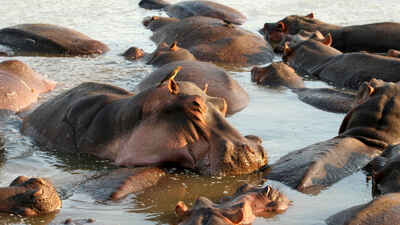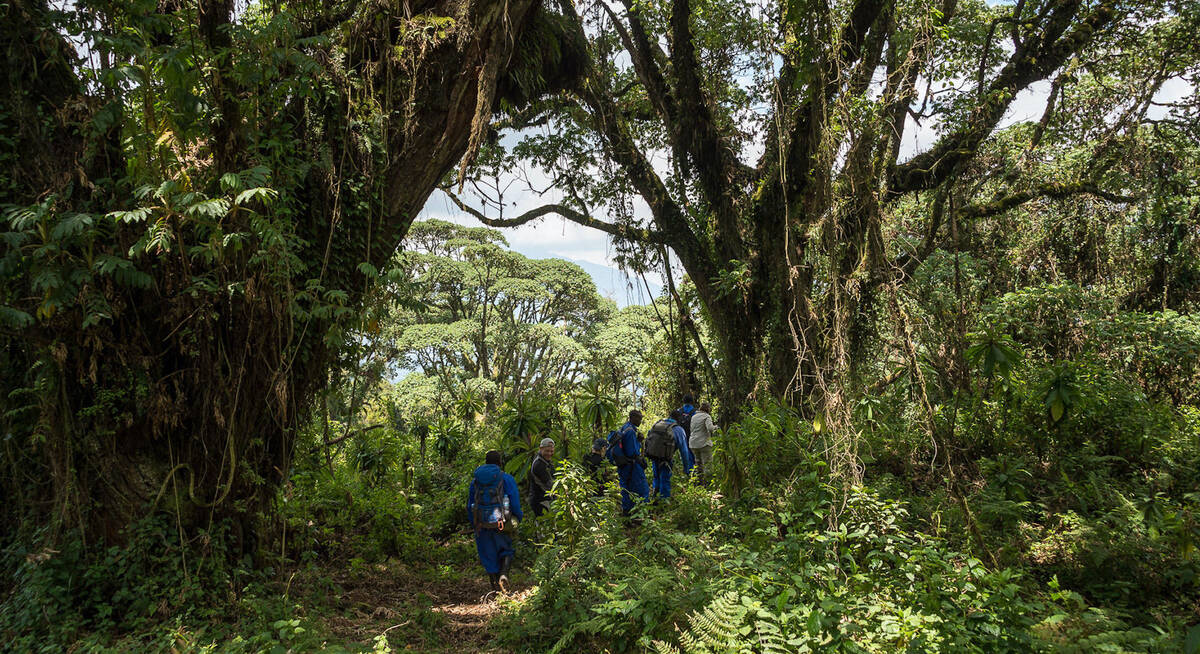Where to see Hippo in Rwanda
The noisy territorial calls of the hippopotamus create a signature soundtrack to Africa’s wild rivers and wetlands. Despite the endearing smile, however, this heavyweight aquatic herbivore has a notoriously aggressive disposition.
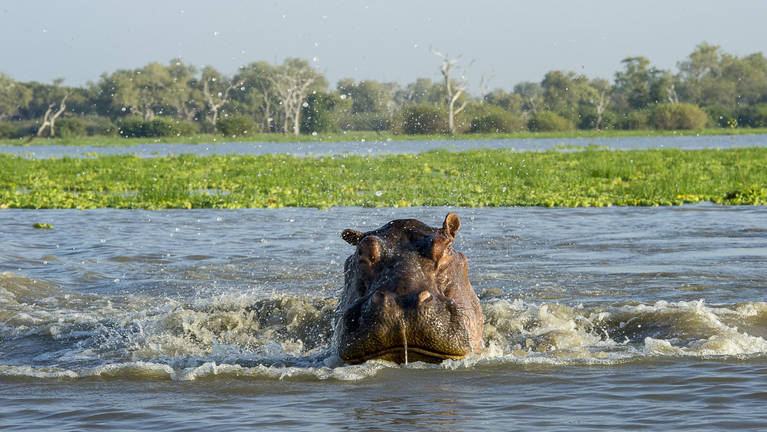
Quick facts about Hippo
| Scientific name: | Hippopotamus amphibius | Habitat: | Freshwater rivers & wetlands |
|---|---|---|---|
| IUCN status: | Vulnerable | Adult weight: | 1,300–2,600kg |
The hippopotamus leads a double life. Uniquely among Africa’s large herbivores, it spends daytime in water, where pods of up to a dozen – generally an adult male plus females and young – laze in the shallows, often showing just their heads.
By night, hippos leave the water and disperse to feed, wandering far in search of grazing. On land, they are solitary, the calves staying with their mothers.
During the dry season, as waterways shrink, pods congregate in large herds. A hippo’s rotund body, naked hide and elevated eyes and nostrils are adaptations for its aquatic lifestyle. Its huge incisors and canines serve not for feeding but for threat displays and fighting; rival bulls contest violent territorial skirmishes.
30km/h
Max. speed on land
50cm
Max. length of canines
15km
Max. nightly wanderings
68kg
Max. grass consumed nightly
The top camps for seeing hippo in Rwanda
Based on 8 reports by our travellers since Aug 2018, visitors at these camps in Rwanda have the best chances of sighting hippo.
Best chances to see
Good chances to see
Some sightings
No sightings yet
Where to see hippos in Africa
Hippos occur in most major rivers and wetlands across sub-Saharan Africa, their presence betrayed by their resonant calls and distinctive ‘highways’. Nervous and potentially aggressive, they always demand respect.
Top tips for viewing hippos
Large aggregations of hippos are an impressive sight on any safari. Major rivers in a suitable habitat, such as the Chobe, Zambezi, Victoria Nile and Luangwa, allow excellent viewing, while wetlands such as Botswana’s Okavango Delta have their landscapes shaped by these heavyweight herbivores, which plough channels and waterways. Elsewhere, hippos often take up residence in smaller waterholes, sometimes cramming into the smallest of mud wallows.
Boat trips in some parks allow close viewing on the water, while guided canoe trails offer more exposed, adrenalin-charged encounters. Hippos may wander past waterside lodges at night, allowing you to watch how they crop the sward with their lips and scatter their dung with a flicking tail. Always keep a safe distance.
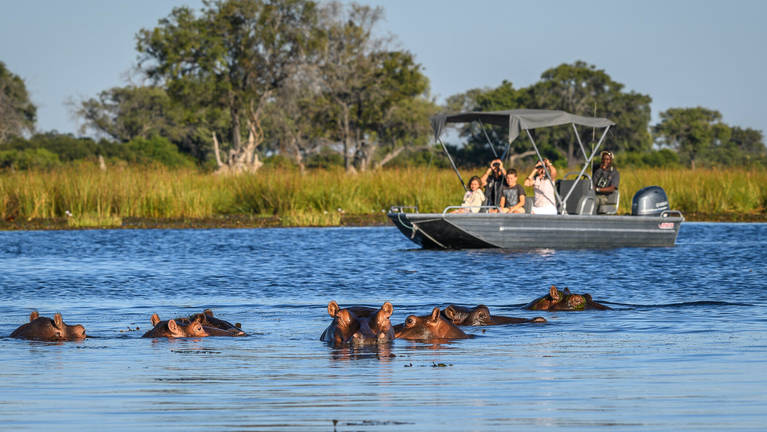
Our best Rwanda holidays for hippo sightings
Based on our travellers' reports, these ideas for Rwanda safaris are likely to give the best hippo sightings
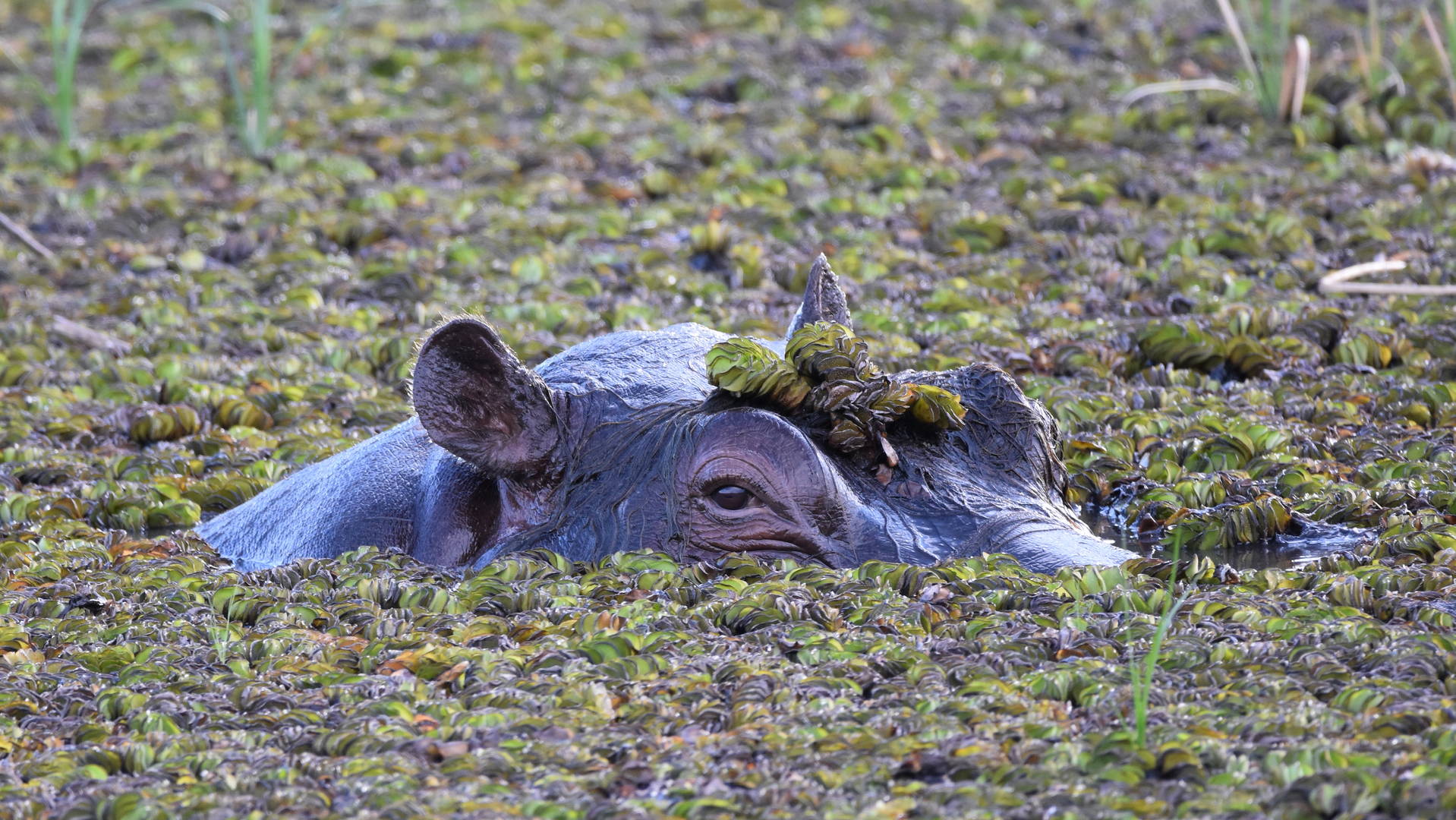
More information about hippo in our other destinations
Click here for detailed information about hippo in other countries, including the places for sighting hippo.
